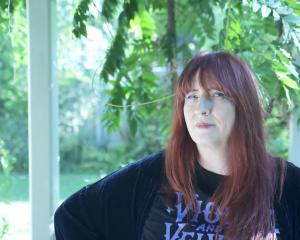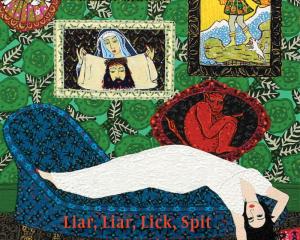
How We Desire begins with a thoughtful quote from Montaigne: "there is as much difference between us and ourselves as between us and others." Through her work, journalist Carolin Emcke ponders this difference or space between us and ourselves, especially in regards to desire.
On the surface this book is about Emcke's journey towards understanding herself as a lesbian woman, but beyond that, How We Desire is a much wider-ranging and sustained meditation about how we see ourselves, how our perception of ourselves changes, and how others see us.
Emcke moves roughly speaking from a more general bird's-eye view at the beginning of the book to the more specific and personal.
The first part of the book paints a picture of the cultural context Emcke grew up in, including the push-me-pull-you tension between conservatism and liberalism in the sex education she received in her native Germany, and the legislation during her childhood that still carried unchanged elements of homophobic Nazi ideology from 30 years earlier.
As we move through the book, the focus narrows until nearly the end, when Emcke begins to ask questions that clearly bother her personally: "Why should my desire alone determine who I was? Why should it make any difference who I slept with?"
Tying the whole book together is the story of Daniel, a childhood friend who, we find out, committed suicide and who Emcke suspects may have been gay but, unlike her, never had the chance to let that side of himself flourish.
To Emcke, Daniel is the question she cannot find an answer to, and the thorn she cannot pluck from under her skin. His is the life that should not have been cut short, and who would have lived but for the same difference she discovered in herself.
Told in gentle, lyrical prose, simply and clearly presenting the subtleties of Emcke's thoughts, How We Desire is a beautiful account of discovering and rediscovering one's identity, and a proud shaking off of society's set norms in favour of a more truthful understanding of mutable, quicksilver desire.
Feby Idrus is a writer, musician, and arts administrator in Wellington.












